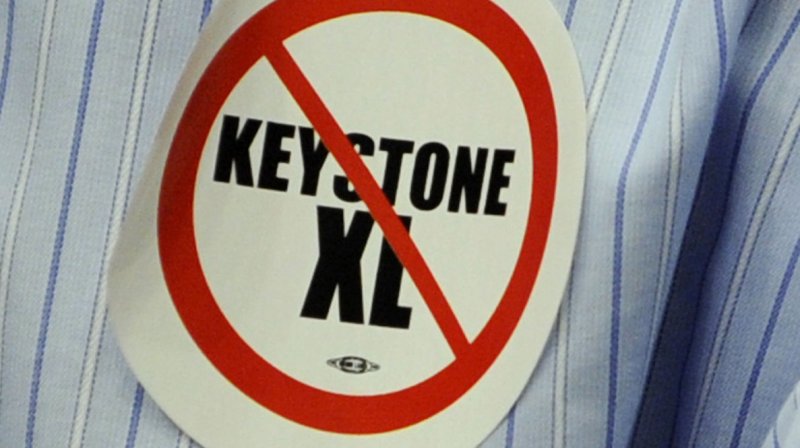A man wears a sticker against the Keystone XL pipeline project at a State Department hearing to consider if it is in the U.S. national interest in Washington, DC, on October 7, 2011. The pipeline would carry crude oil from Canada through nine U.S. states to Houston, Texas. UPI/Roger L. Wollenberg |
License Photo
WASHINGTON, March 8 (UPI) -- House leaders announced they drafted legislation that would strip authority from the president to approve the Keystone XL oil pipeline planned from Canada.
The U.S. State Department last week submitted a draft environmental review of Keystone XL. The report said there would be few environmental side effects from pipeline construction.
U.S. President Barack Obama would ultimately determine if the project is in the national interest.
U.S. Rep. Lee Terry, R-Neb., author of the legislation, said it's time for legislators to step in to get the project approved.
"It's been over four years and thousands of pages of environmental reviews. The experts have weighed in," he said in a statement. "Now is the time to build the Keystone pipeline."
Lee's legislation, dubbed the Northern Route Approval Act, states that "no presidential permit shall be required" for the planned $7 billion pipeline. It says securing oil from Canada is in the national interest because it would shield U.S. markets from other market issues.
Oil Change International, a group opposing Keystone XL, says the co-sponsors of Lee's measure received, in total, more than $1.6 million in campaign contributions from oil companies.
Supporters of the pipeline say it's good for energy security and economic stimulus. Detractors said the amount of greenhouse gas emissions tied to oil sands production is too great of a risk.















